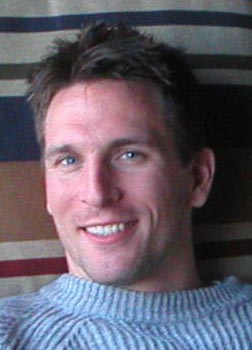The True Story of 2 Salvadoreños in Search of their Destiny
I leisurely walk along the beach in Los Cóbanos passing the local food kiosks, comedores and restaurants. It is the weekend and the beach is filling up with locals trying to enjoy a few relaxing hours seaside. All of a sudden I hear a greeting in American English: “Hey, what’s up man?” Surprised I look around but there is no white face in sight. From nearby table a Salvadoreño waves me over to greet me. We start a conversation and he insists on speaking English (speaking English is a big privilege so the ones that do like to use every opportunity to show it off). We decide to have a drink together. One drink turns into two and three as Julio gradually opens up and shares his story (now in Spanish – I guess alcohol always brings one back to its roots). At the age of 15 Julio left his mother (voluntarily) in search of a better life. With no money and very few marketable skills (he had never gone to school) he made it across Guatemala, then Mexico and finally the USA. He tells me that story of how he ran across the desert fleeting an approaching US border control. Not knowing anybody in the USA, he spent the following years sleeping under a highway bridge working for 3 USD / hour. Little by little hard work and an open mind let him to study English, learning how to read and write and finally receiving a certificate in plumbing. Eventually he upgraded his living quarters renting a trailer home. He then invited his girlfriend from El Salvador to join him. Finally he was able to buy his own house and after many years of paying taxes his employer was able to apply for a green card (permanent residency) on his behalf. He tells me how proud he feels that after 17 years in the USA he is now completely legal and can come and return to both countries as he pleases. His current job as a plumber pays him $16 USD / hour, which compares rather favourably to an average wage of $6 USD / day in El Salvador. He now has a 3 year old child (with the same girlfriend that followed him to the USA 15 years ago) and hopes that his son’s life will be easier and better. For Julio the risks and years of sacrifices paid off. He smiles feeling lucky and fortunate saying: “Life has been good to me. I feel like I won the lottery.”
The old chicken bus turns into the centre of Juayúa, a small town in the El Salvador mountains. Rain is pouring down the dark sky like crazy. I step off the bus and run as fast as possible to the nearest shelter, a local café. As I sit down to enjoy my pastry and a cup of delicious El Salvador coffee a man approaches also initiating the conversation in English. Both trapped by the rain outside, I invite him to my table and a conversation evolves. It turns out that Carlos has been dying to speak to somebody. He says he feels lonely and has not really had a good conversation in weeks. When I ask him why, he points to his arms, which are covered in tattoos. I received these in the USA he starts, but here in El Salvador they symbolize gang affiliation that is why people are afraid of me. He gradually gains confidence that I will not judge him for who he is or what he has done and shares his story. He arrived in the USA with his family as a 13 year old (illegally). Not speaking English he felt lost. To get by and impress his new “friends” he started getting involved in crime. One thing led to another and his actions took a turn for the worse. Things ended badly (as they often do in the world of crime) in an armed robbery where he shot an approaching security guard (luckily not seriously) and tried to escape approaching police. He was caught and sent to jail for 11 years at the age of 18. The next hours are filled with countless breathtaking stories of survival in the US prison system. Despite many close calls things turned out well and he was released on time at the age of 29 and immediately deported back to El Salvador. This was 3 months ago. He is now trying to establish a new life and earn his living honestly, but things are difficult, he says, as all his family remains in the USA and he knows nobody. The people he meets are afraid of him because of his tattoos and his history. He knows a few people (also former inmates form the US prison) in the bigger cities but all of them immediately tried to talk him into joining their lives of crimes and drugs. So he decided to leave the city and come to this quiet mountain town. His nickname, he tells me, is Triste (sad) and his eyes convey a lot of sadness. As we shake hands and part ways I wish him good luck and really hope he will have the strength to build the simple, happy and legal life he hopes for.



<< Home